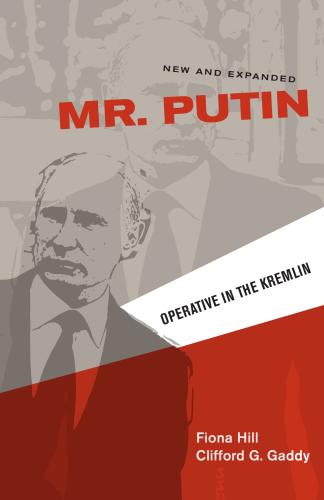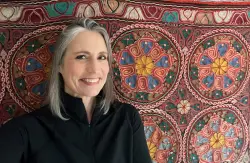This piece is part of a series remembering the life, career, and legacy of Helmut (Hal) Sonnenfeldt — a member of the National Security Council, counselor at the Department of State, scholar at the Johns Hopkins School of Advanced International Studies (SAIS), and Brookings expert.
Hal Sonnenfeldt was a giant in the formation of U.S. policy toward the Soviet Union during the Cold War, leading research on the USSR at the State Department and then at the National Security Council for two decades before becoming counselor at the State Department.
It was a great coup for Brookings that Hal completed his distinguished career at the institution, spending another three decades passing on his insights and mentoring younger colleagues. This was not the twilight of his career. It was another important phase, and having the opportunity to sit down with the legendary Hal Sonnenfeldt for lunch every day was a privilege. It was the highlight of my early years at Brookings. Hal offered unvarnished advice on research projects in addition to opening doors to vast troves of information and providing unique perspectives on historical developments in which he himself had played a central role. Toward the end of his life, his wife Margie would join us for the lunches, and she played a major role in a key professional decision I made several years after Hal’s passing.
Others in this festschrift project who know Hal from his early days — as an émigré from Europe, a government official, and ultimately as “Kissinger’s Kissinger” in dealing with Moscow during the 1970s — have explained his deep background on the subject with wonderful perspective and personal anecdotes.
I would only add that, in writing “Mr. Putin: Operative in the Kremlin” with Clifford Gaddy in the early 2010s, Hal was an inspiration and a kindred spirit. Hal had brainstormed with us on the project and the research strands that formed the precursor to the book. Sadly, by the time Cliff and I began to write the first edition of the book, Hal was no longer quite himself, but his rich historical sense of Russia and the Soviet Union, and the conversations we had with him, already infused our work.
In the book, Cliff and I attempted to explain the worldview and motivations of the Kremlin leader by rooting Vladimir Putin in the particular context of the developments in the Soviet Union and post-Soviet Russia that had shaped his life as well as the system. Hal understood this context better than anyone. Putin was born in 1952, the very year that Hal began his government service as a researcher on the USSR, and Hal was well versed in what it meant for Putin to grow up in the USSR in the 1950s and 1960s, and then to join the KGB in the 1970s. Hal had a very good idea of what Putin’s career would have been like and how his political views would have evolved in that period.
We completed the book in the last year of Hal’s life, and I would like to think that our attempt to fathom the deepest motives and outlooks of the Russian president was in keeping with the tradition of American thought and policy that individuals with great historical sophistication and appreciation for Russia, like George Kennan and Hal Sonnenfeldt, inspired and led. Like William Faulkner, Hal was of the view that the past was not dead, or forgotten — or even really the past. For a Russia scholar, there is no better pearl of wisdom to begin one’s work.
In the more recent past, Hal’s legacy was personally as well as professionally consequential. In 2017, I was asked to serve on the National Security Council staff as a Europe and Russia expert under the Trump administration, immediately in the wake of a singularly contentious election with the national and international spotlight on Russian efforts to influence and interfere in the campaign. There were not many other Brookings scholars being approached by the incoming team, and beyond my scholarly and professional credentials I was not necessarily the most obvious fit for the new administration. Margie Sonnenfeldt, Hal’s wonderful wife and our dear friend at Brookings — a wise woman in her own right — channeled her late husband and drew on observations from his government service in a similarly turbulent period in the nation’s history. She did not shy away from the inevitable risks, the brutally long hours, and the personal toll this would take, but she stressed the importance of stepping up to public service in politically disruptive and controversial times, and of making a contribution. Her call to service made a huge difference in my decision, and periodic personal emails from Margie kept me going at more than one tough moment after I joined the administration.
So Hal, in addition to everything else you did, thank you for bringing Margie into our Brookings community as well.
The Brookings Institution is committed to quality, independence, and impact.
We are supported by a diverse array of funders. In line with our values and policies, each Brookings publication represents the sole views of its author(s).







Commentary
The scholarly, professional, and personal wisdom of Hal and Margie Sonnenfeldt
October 17, 2019